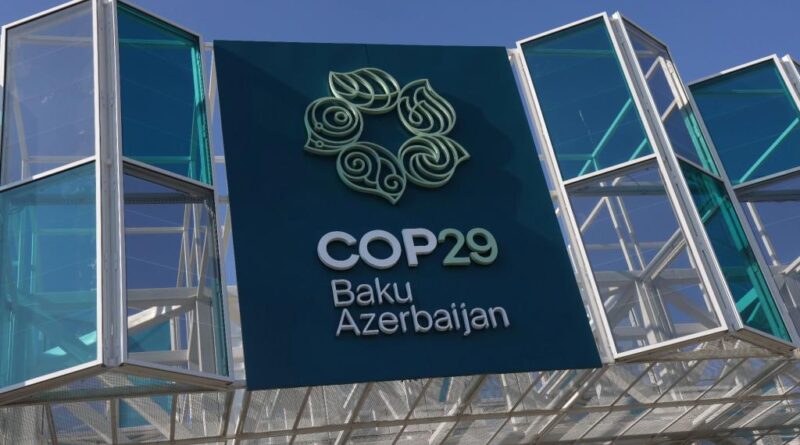Is the UN climate conference simply a ploy to extort money from the West?

The UN climate summit in Azerbaijan commenced on Monday overshadowed by Donald Trump’s election and with several key leaders absent.
Despite low expectations, the summit will feature grandiose speeches advocating for a significant flow of funds from wealthy nations to poorer ones. The unrealistic calls for trillions of dollars are unlikely to succeed.
The main issue is the disparity between wealthy nations, responsible for the bulk of emissions causing climate change, aiming to reduce emissions, while poorer countries seek economic growth heavily reliant on fossil fuels. To incentivize action by poorer nations, financial incentives were introduced by the West two decades ago.
In 2009, then-US Secretary of State Hillary Clinton pledged “new and additional” funds of $100 billion annually by 2020 in exchange for developing countries agreeing to future carbon reductions.
The rich world failed to deliver on this promise, with most funding being repackaged and mislabeled as development aid.
Despite this failure, developing countries now demand even more financial assistance. For instance, India stated it would require $100 billion annually for its own transition.
In 2021, China, India, Brazil, and South Africa agreed that rich nations should increase financing from billions to trillions of US dollars.
Economist Ottmar Edenhofer predicted back in 2010 that international climate policy is essentially a redistribution of world wealth rather than environmental policy.
It is challenging to extract billions, let alone trillions, from a rich world dealing with its own issues.
Cleverly, campaigners and many developing countries have shifted the reason for these transfers by attributing weather damage costs to emissions from wealthy nations and seeking compensation for “loss and damages.”
Factual data shows that weather damages have declined as a percentage of global GDP since 1990 for both rich and poor countries, with a significant decrease in deaths from weather catastrophes.
Despite the obstacles, the establishment of a “loss and damages” fund aims to generate trillions for poorer countries by 2030.
Campaigners suggest that the West should annually raise $2.5 trillion for reparations to address climate damages.
This demand would cost every individual in the rich world over $1,000 per year on top of the expenses for carbon emission reduction policies.
A recent American survey revealed opposition to such massive transfers, indicating that majorities in the West are unlikely to support them.
Ultimately, the focus should be on efficiently allocating resources towards innovation to drive down the price of green energy and encourage a transition away from fossil fuels.
This pragmatic approach should be the focus of discussions at the UN climate summit instead of unrealistic demands for wealth transfers.
Bjorn Lomborg, president of the Copenhagen Consensus, visiting fellow at Stanford University’s Hoover Institution, and author of “False Alarm” and “Best Things First,” advocates for a more sustainable and effective strategy for addressing climate change.



